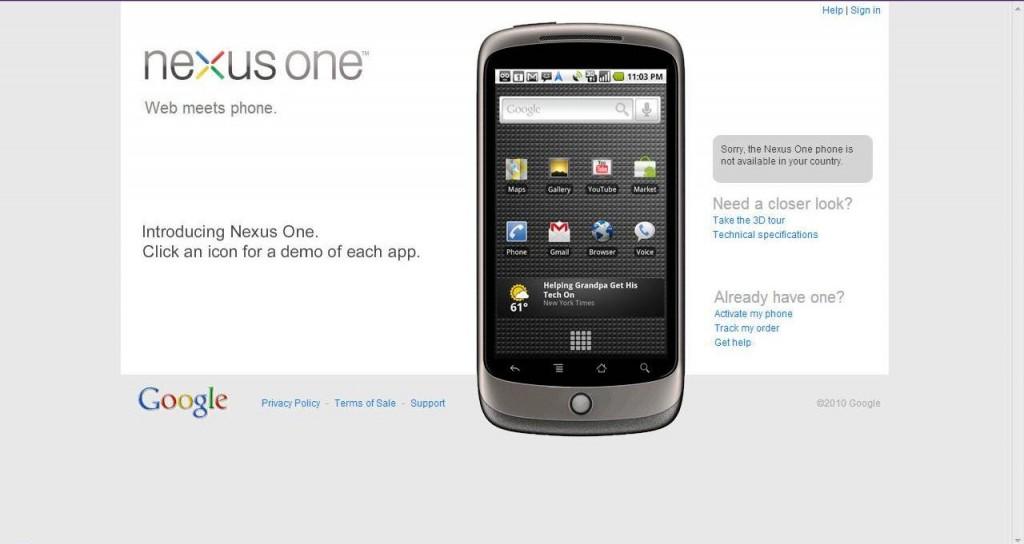Honestly, I don’t think anyone is going to be surprised to hear that Google has announced the end of the Nexus One online sales. Instead, they’ll be adopting a global method of selling devices in-stores with partner carriers. The website will shift to promoting the “…variety of Android phones available globally.” Google isn’t too proud to admit that some strategies work and others don’t and that while they are pleased with the adoption of Android, they understand that the hands on experience of buying a phone is something a web store can’t duplicate.
Full press release follows:
Nexus One changes in availability
5/14/2010 09:30:00 AM
We launched Nexus One in January with two goals in mind: to introduce a beacon of innovation among Android handsets, and to make it quick and easy for people to buy an Android phone. We’re very happy with the adoption of Android in general, and the innovation delivered through Nexus One. Already, a lot of the innovation that went into creating Nexus One has found its way into numerous Android handsets, like the HTC Evo 4G from Sprint and the Verizon Droid Incredible by HTC.
But, as with every innovation, some parts worked better than others. While the global adoption of the Android platform has exceeded our expectations, the web store has not. It’s remained a niche channel for early adopters, but it’s clear that many customers like a hands-on experience before buying a phone, and they also want a wide range of service plans to chose from.
So today we’re announcing the following changes:
More retail availability. As we make Nexus One available in more countries we’ll follow the same model we’ve adopted in Europe, where we’re working with partners to offer Nexus One to consumers through existing retail channels. We’ll shift to a similar model globally.
From retail to viewing. Once we have increased the availability of Nexus One devices in stores, we’ll stop selling handsets via the web store, and will instead use it as an online store window to showcase a variety of Android phones available globally.
Innovation requires constant iteration. We believe that the changes we’re announcing today will help get more phones to more people quicker, which is good for the entire Android ecosystem: users, partners and also Google.
Posted by Andy Rubin, VP, Engineering

